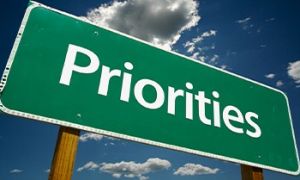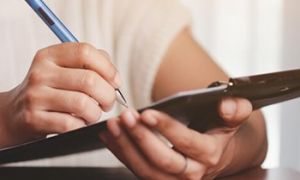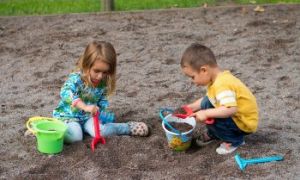

A: A jotting observation is a concise and informal way to document significant events, behaviors, or interactions. These observations are typically brief, focusing on specific moments rather than a sequence of events. They provide a snapshot of a child's interests, development, or skills and can be recorded in various formats, such as notebooks or post-it notes.
MTOP (My Time, Our Place) Outcome 1 focuses on children having a strong sense of identity. This means that in school-age care settings, children develop a sense of belonging when they feel accepted and can build relationships with peers and educators. Their confidence, motivation, and self-identity are shaped by their interactions with others.
Quality Area 5: Relationships with Children is fundamental in early childhood education as it lays the groundwork for a nurturing and supportive learning environment. Here are some key terms and concepts central to this quality area.
Documenting infant and toddler learning is a vital practice that captures the essence of their developmental journey. It involves observing, recording, and reflecting on their actions, interactions, and milestones to make their learning visible. The following article provides information on: Importance Of Documenting Infant and Toddler Learning and Development, Showcasing Infants and Toddlers Learning and Development, Documenting Infant and Toddler Milestones, Linking Infant and Toddler Learning To The EYLF and more.
A Quality Improvement Plan (QIP) in early childhood education is a structured approach to assessing and enhancing the quality of care and learning experiences provided to children. It helps childcare providers reflect on their practices, identify areas for improvement, and implement strategies to enhance outcomes.
Achieving EYLF Outcome 5—Children Are Effective Communicators—in the Babies Room focuses on fostering foundational communication skills in the youngest learners. In an environment where babies largely communicate non-verbally, educators play a crucial role in creating opportunities for both expressive and receptive language development. Here’s how you can integrate practices that support this outcome in the Babies Room.
Quality Area 4 focuses on Staffing Arrangements in early childhood education settings. It ensures that educators are qualified, experienced, and collaborative, fostering a positive learning environment for children. Here are some key terms associated with this area.
EYLF Outcome 4 centers on empowering children to become self-assured, engaged participants in their own learning. It’s all about nurturing a mindset where children perceive learning as an active, enjoyable, and continual journey. The following article provides information on the Definition Of Sub Outcomes, Practical Examples Of Sub Outcomes, Applying Sub Outcomes Into Practice and more.
Incorporating follow-ups into the EYLF program means creating an ongoing, responsive cycle that both monitors and builds on children’s learning. Here are some detailed strategies to help you weave follow-ups seamlessly into your EYLF planning cycle.
EYLF Outcome 3: Children Have a Strong Sense of Wellbeing focuses on fostering children's physical, emotional, and social wellbeing. It emphasizes resilience, self-regulation, and healthy lifestyle habits, which are essential for children's development and learning. The following article provides information on the Definition Of Sub Outcomes, Practical Examples Of Sub Outcomes, Applying Sub Outcomes Into Practice and more.
 Here is the list of the EYLF Learning Outcomes that you can use as a guide or reference for your documentation and planning. The EYLF… Read More
Here is the list of the EYLF Learning Outcomes that you can use as a guide or reference for your documentation and planning. The EYLF… Read More
 The EYLF is a guide which consists of Principles, Practices and 5 main Learning Outcomes along with each of their sub outcomes, based on identity,… Read More
The EYLF is a guide which consists of Principles, Practices and 5 main Learning Outcomes along with each of their sub outcomes, based on identity,… Read More
 This is a guide on How to Write a Learning Story. It provides information on What Is A Learning Story, Writing A Learning Story, Sample… Read More
This is a guide on How to Write a Learning Story. It provides information on What Is A Learning Story, Writing A Learning Story, Sample… Read More
 One of the most important types of documentation methods that educators needs to be familiar with are “observations”. Observations are crucial for all early childhood… Read More
One of the most important types of documentation methods that educators needs to be familiar with are “observations”. Observations are crucial for all early childhood… Read More
 To support children achieve learning outcomes from the EYLF Framework, the following list gives educators examples of how to promote children's learning in each individual… Read More
To support children achieve learning outcomes from the EYLF Framework, the following list gives educators examples of how to promote children's learning in each individual… Read More
 Reflective practice is learning from everyday situations and issues and concerns that arise which form part of our daily routine while working in an early… Read More
Reflective practice is learning from everyday situations and issues and concerns that arise which form part of our daily routine while working in an early… Read More
 Within Australia, Programming and Planning is reflected and supported by the Early Years Learning Framework. Educators within early childhood settings, use the EYLF to guide… Read More
Within Australia, Programming and Planning is reflected and supported by the Early Years Learning Framework. Educators within early childhood settings, use the EYLF to guide… Read More
 When observing children, it's important that we use a range of different observation methods from running records, learning stories to photographs and work samples. Using… Read More
When observing children, it's important that we use a range of different observation methods from running records, learning stories to photographs and work samples. Using… Read More
 This is a guide for educators on what to observe under each sub learning outcome from the EYLF Framework, when a child is engaged in… Read More
This is a guide for educators on what to observe under each sub learning outcome from the EYLF Framework, when a child is engaged in… Read More
 The Early Years Learning Framework describes the curriculum as “all the interactions, experiences, activities, routines and events, planned and unplanned, that occur in an environment… Read More
The Early Years Learning Framework describes the curriculum as “all the interactions, experiences, activities, routines and events, planned and unplanned, that occur in an environment… Read More

With new child safety regulations having just come into effect, here’s a sector-responsive list of...
See more...
A: While photos can enrich documentation by capturing moments visually, many observations are just as powerful...
See more...
Play is a process that is freely chosen, personally directed and intrinsically motivated. In this...
See more...© 2009-2025 Aussie Childcare Network Pty Ltd. All Rights Reserved.
